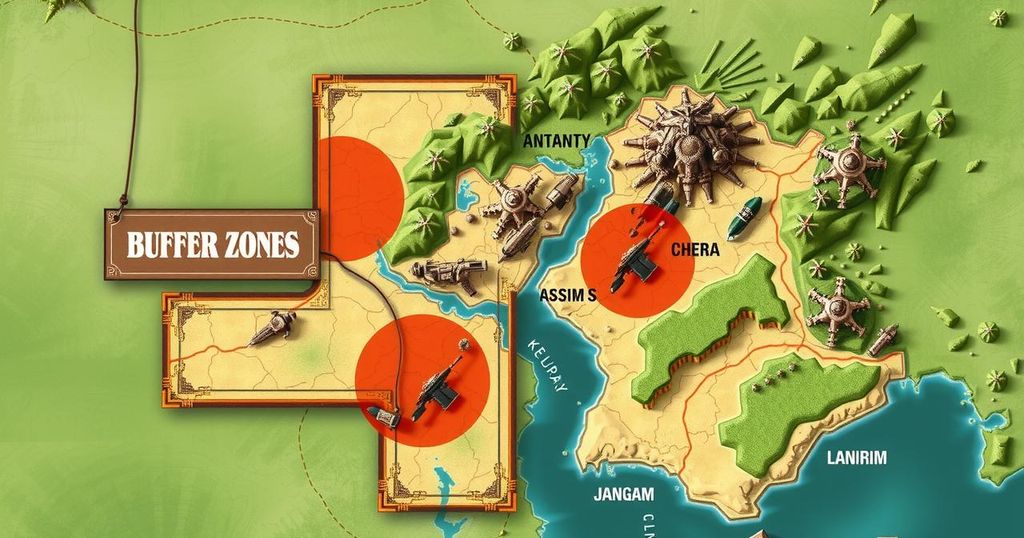Israel is intensifying military outposts along its northern border with Lebanon amidst ongoing tensions. These measures aim to bolster security, yet implementing buffer zones is challenging for local residents. The new Chief of Staff, Eyal Zamir, is tasked with border security, while questions persist about potential diplomatic strategies under Prime Minister Netanyahu.
Recent tensions along the Israeli-Lebanese border have prompted Israel’s leaders to reevaluate their security measures. The Israeli military has ramped up its operations, addressing daily threats through heightened assassinations and bombings. In response to these challenges, Israel aims to establish numerous military outposts that will stretch to the northern borders, forging a formidable barrier between its populated areas and Lebanon.
However, the implementation of buffer zones remains contentious; it poses significant challenges to the residents of northern Israel. The Israeli military is not solely focusing on Lebanon but also engaging in operations across other fronts, extending to regions as far as Iran. In its pursuit of enhanced defense capabilities, Israel is conducting joint military exercises with the United States.
Under the leadership of the newly appointed Chief of Staff, Eyal Zamir, there is a clear directive to fortify the borders using all available measures. While Zamir’s posture indicates a readiness to escalate military operations, uncertainties loom about Prime Minister Benjamin Netanyahu’s potential strategies for de-escalation and possibly pursuing diplomatic avenues aligned with U.S. interests to end the ongoing conflict.
In summary, the evolving strategies surrounding Israel’s military presence on the Lebanese front highlight a significant shift in security management. The establishment of military outposts seeks to enhance protection against persistent threats, while the complexities of instituting buffer zones raise concerns among local populations. The military’s commitment to operational strength, coupled with political uncertainty regarding future diplomatic efforts, encapsulates the intricacies of the Israeli-Lebanese tensions.
Original Source: www.lbcgroup.tv






